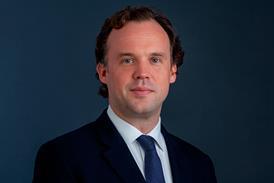The first case enforcing ‘failure to prevent bribery’ legislation has been resolved with the conviction of an interior design company, the Crown Prosecution Service (CPS) has announced.
London-based Skansen Interiors was convicted after a two-day trial last month. The ‘failure to prevent’ law, which came into force in 2011, falls under section 7 of the Bribery Act. A business commits a criminal offence unless it can show that it has adequate procedures to prevent bribery.
In the case, a jury determined that Skansen’s controls did not constitute adequate procedures. However the company, which is now dormant, was given an absolute discharge – meaning a conviction will not be registered on its record.
The CPS, which brought the charges against the company and senior executives, claimed Skansen’s managing director at the time, Stephen Banks, bribed a project manager at a property company to award it refurbishment contracts worth £6 million.
Banks pleaded guilty to three offences, while Graham Deakin, a former project manager at the property company, pleaded guilty to two offences. Southwark Crown Court has yet to set a date for sentencing.
Jonathan Pickworth, partner at international firm White & Case, said: ‘The CPS prosecuted this case to send the message that bribery is not tolerated. But it also sends a confusing message regarding self-reporting. It is unclear whether, if presented with the same facts, the Serious Fraud Office would have prosecuted a dormant company that had fired the wrongdoers and self-reported.’
He added: ‘There is not much to draw from the verdict. But it is clear that the adequate procedures requirement applies to all companies, large or small. Simply relying on general financial safeguards is not enough. All the component parts of “adequate procedures” need to be properly addressed – a clear and well-communicated policy, a properly documented and up-to-date risk assessment, a set of appropriate procedures tailored to the risks identified, appropriate due diligence on third parties, and proper training tailored to the business.’



























7 Readers' comments